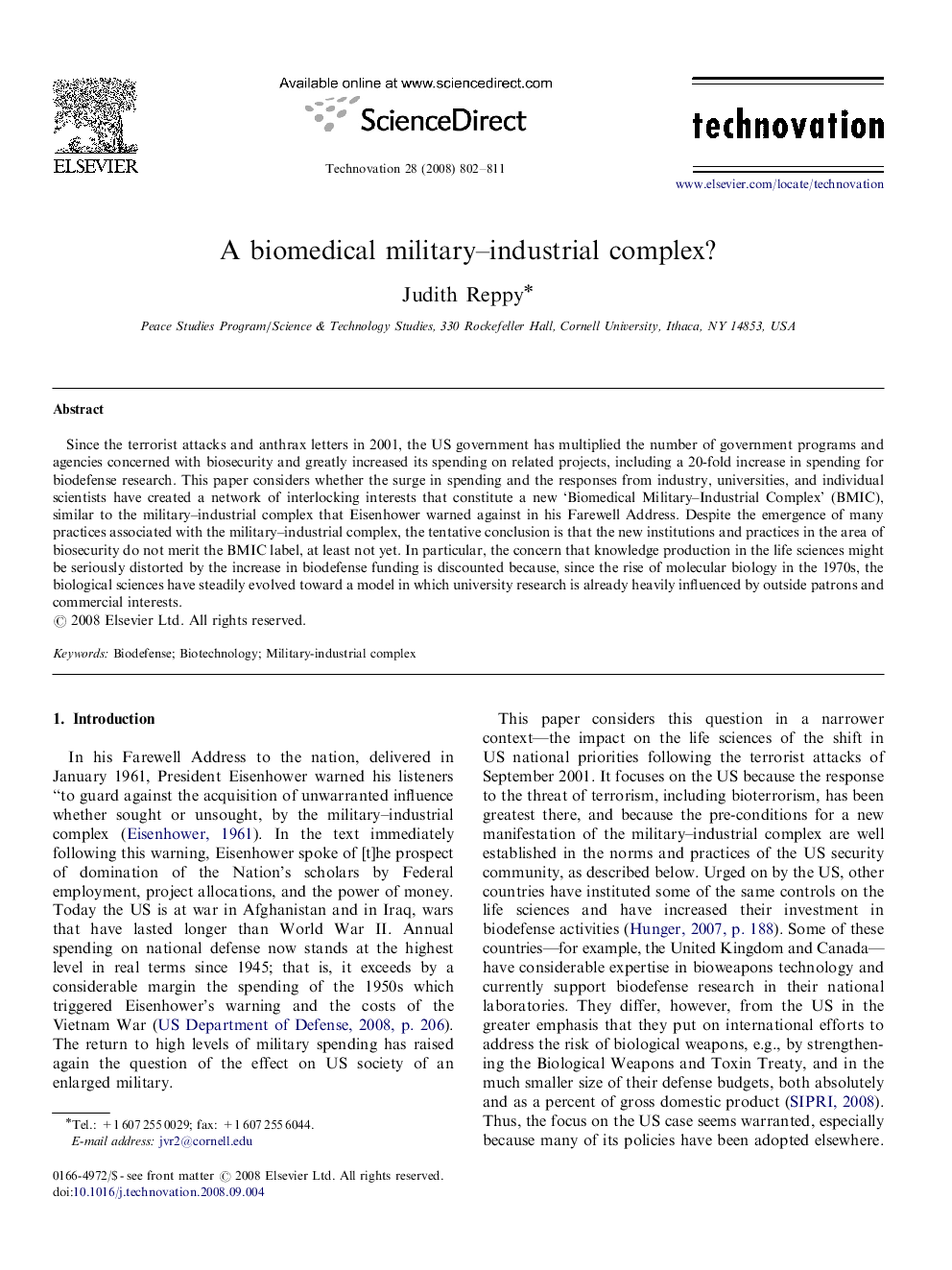| Article ID | Journal | Published Year | Pages | File Type |
|---|---|---|---|---|
| 1022628 | Technovation | 2008 | 10 Pages |
Since the terrorist attacks and anthrax letters in 2001, the US government has multiplied the number of government programs and agencies concerned with biosecurity and greatly increased its spending on related projects, including a 20-fold increase in spending for biodefense research. This paper considers whether the surge in spending and the responses from industry, universities, and individual scientists have created a network of interlocking interests that constitute a new ‘Biomedical Military–Industrial Complex’ (BMIC), similar to the military–industrial complex that Eisenhower warned against in his Farewell Address. Despite the emergence of many practices associated with the military–industrial complex, the tentative conclusion is that the new institutions and practices in the area of biosecurity do not merit the BMIC label, at least not yet. In particular, the concern that knowledge production in the life sciences might be seriously distorted by the increase in biodefense funding is discounted because, since the rise of molecular biology in the 1970s, the biological sciences have steadily evolved toward a model in which university research is already heavily influenced by outside patrons and commercial interests.
